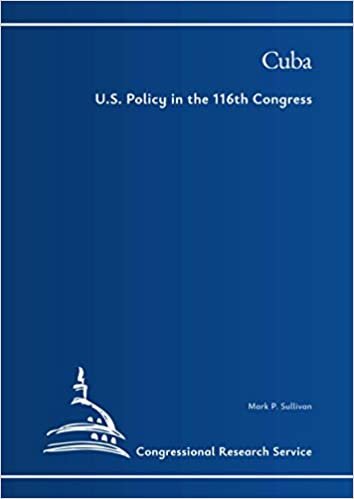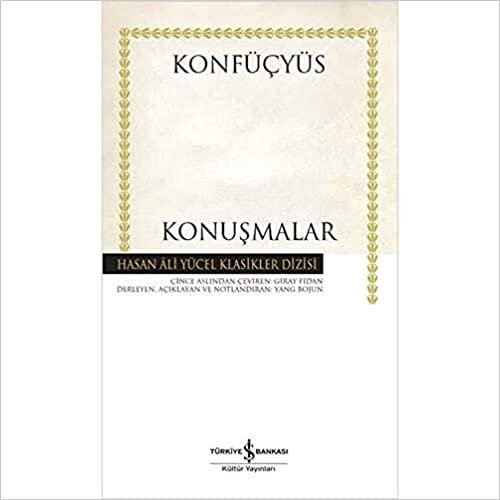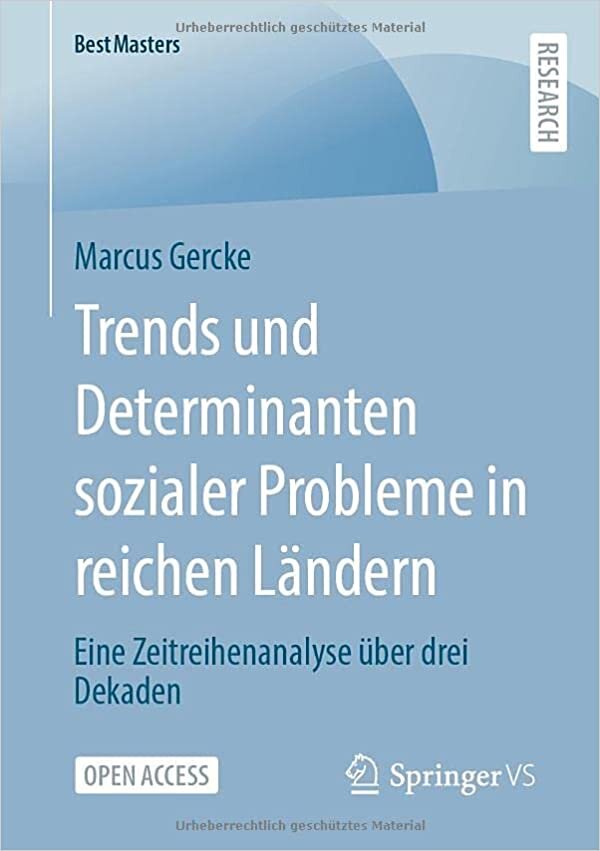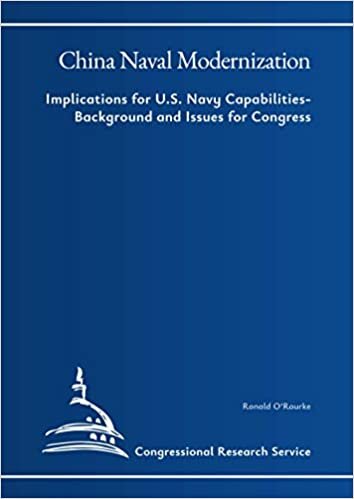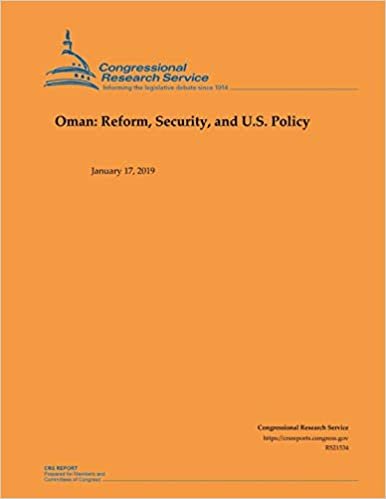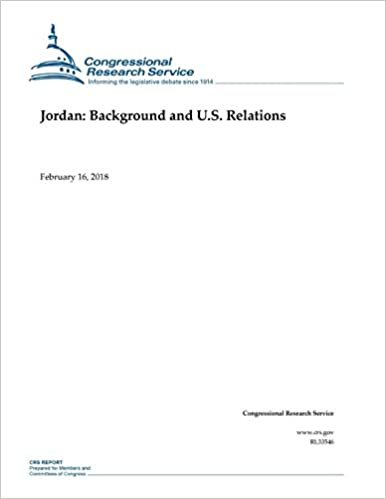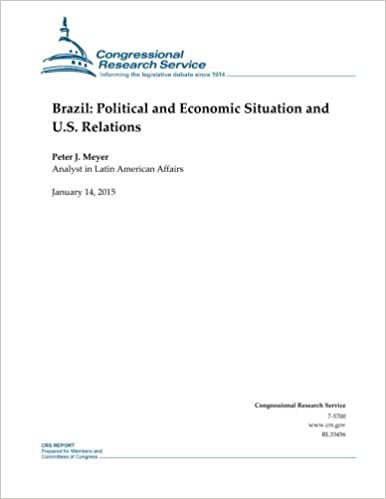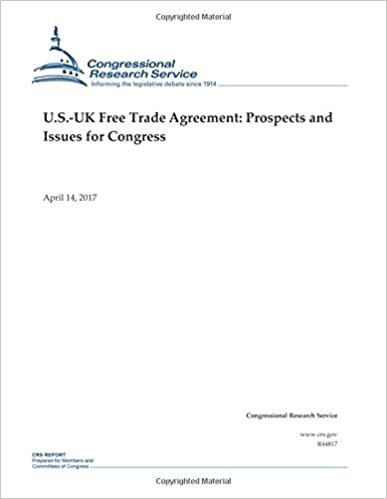Cuba: U.S. Policy in the 116th Congress
Taşınabilir belge biçimi (PDF), birçok platformdan hangisine ve bu belgenin hangi uygulamada oluşturulduğuna bakılmaksızın, yazı tiplerini, görüntüleri ve orijinal belgenin düzenini kaydetmenize izin veren evrensel bir dosya biçimidir, bu kitapların depolanması için idealdir Cuba: U.S. Policy in the 116th Congress tarafından Congressional Research Service. Adobe PDF formatı, Cuba: U.S. Policy in the 116th Congress gibi güvenli bir şekilde korunan elektronik belgelerin ve antetli kağıtların ve kitapların çoğaltılması ve değiştirilmesi alanında tanınan küresel standart olarak kabul edilir. Adobe PDF dosyaları küçük ve bağımsızdır; ücretsiz Adobe Reader® yazılımı ile birlikte çalışma, görüntüleme ve yazdırma olanağı sunar. Adobe PDF biçiminin yayınlama ve yazdırma işlemlerinde kullanılması haklıdır, bu nedenle Cuba: U.S. Policy in the 116th Congress kitabını bu biçimde indirmenizi öneririz. Adobe PDF'nin birleştirilmiş (kompozit) bir düzeni kaydetme yeteneği sayesinde, yazdırma personelinin bunlardan test baskılarını görüntüleyebileceği, düzenleyebileceği, sıralayabileceği ve alabileceği kompakt ve güvenilir dosyalar oluşturabilirsiniz. Ayrıca, teknolojik işlemin öngördüğü anda, matbaa dosyayı doğrudan görüntü toplama cihazına gönderebilir ve son işlemeye devam edebilir: baskı öncesi kontrolleri gerçekleştirebilir, yakalayabilir, şeritleri indirebilir veya renk ayrımı yapabilir. Belgeyi PDF formatında kaydederek PDF / X standardına uygun bir dosya oluşturabilirsiniz. PDF / X formatı (taşınabilir belge değişim formatı), yazdırmada zorluklara neden olabilecek birçok renk verisi, yazı tipi ve bindirme kombinasyonunun kullanılmasına izin vermeyen Adobe PDF'nin bir çeşididir. PDF dosyaları baskı öncesi yayınlar için dijital orijinal olarak kullanıldığında, hem düzeni oluşturma aşamasında hem de fotoğraf çıktısı amacıyla (yazılım ve çıktı aygıtları PDF / X formatıyla çalışabiliyorsa) bir PDF / X belgesi oluşturulmalıdır. Cuba: U.S. Policy in the 116th Congress kitabındaki çizimlerin parlaklığı için. PDF / X standartları hakkında. PDF / X standartları Uluslararası Standartlar Örgütü (ISO) tarafından onaylanmıştır. Grafik veri alışverişi için geçerlidir. Dönüştürme sırasında PDF dosyasının belirtilen standarda uygunluğu kontrol edilir. PDF belgesi seçilen ISO standardına uymuyorsa, dönüştürmeyi iptal etme ve dönüştürmeye devam etme arasında seçim yapmanızı sağlayan bir mesaj görüntülenir; bu durumda standart olmayan bir dosya oluşturulur. Yayıncılık ve baskıda en yaygın kullanılan çeşitli PDF / X çeşitleridir: PDF / X-1a, PDF / X-3 ve PDF / X-4.
| Yazar | Congressional Research Service |
|---|---|
| Yayın Evi | Independently published |
| Dil | İngilizce |
Babadada Gmbh İtalyanca Almanca Ulan Press Additional Contributors Icon Group International J B SBoon Independently published Fransızca CreateSpace Independent Publishing Platform İngilizce İspanyolca Leopold Classic Library Book on Demand Ltd. Gale, U.S. Supreme Court Records Kolektif Türkçe J Saosa
indir okumak internet üzerinden
| Yazar | Congressional Research Service Mark P. Sullivan |
|---|---|
| İsbn 13 | 979-8583649976 |
| Yayın Evi | Independently published |
| Dil | İngilizce |
| De olduğu gibi | B08QWH3HD9 |
| tarafından gönderildi Cuba: U.S. Policy in the 116th Congress | 19 Aralık 2020 |
Updated 05/14/2020: Political and economic developments in Cuba, a one-party authoritarian statewith a poor human rights record, frequently have been the subject of intense congressional concernsince the 1959 Cuban revolution. Current Cuban President Miguel Díaz-Canel succeeded RaúlCastro in April 2018, but Castro continues to head Cuba’s Communist Party. A new constitutiontook effect in 2019 that introduced some political and economic reforms but maintained the statesector’s dominance over the economy and the Communist Party’s predominant role. Over the pastdecade, Cuba has implemented gradual market-oriented economic policy changes, but it has nottaken enough action to foster sustainable economic growth. The Cuban economy is being hard-hitby Venezuela’s economic crisis, which has reduced Venezuela’s support for Cuba and increased U.S.economic sanctions, and by the economic shutdown in response to the Coronavirus Disease 2019(COVID-19) pandemic. Cuba’s economy faces a contraction of more than 8% in 2020. The globalcontraction in economic growth, trade, foreign investment, and tourism likely will slow post-COVID-19 economic recovery.Since the early 1960s, the centerpiece of U.S. policy toward Cuba has been economic sanctionsaimed at isolating the Cuban government. Congress has played an active role in shaping policytoward Cuba, including by enacting legislation strengthening, and at times easing, U.S. economicsanctions. In 2014, however, the Obama Administration initiated a policy shift away fromsanctions and toward a policy of engagement. This shift included the restoration of diplomaticrelations (July 2015); the rescission of Cuba’s designation as a state sponsor of internationalterrorism (May 2015); and an increase in travel, commerce, and the flow of information to Cubaimplemented through regulatory changes.In 2017, President Trump unveiled a new policy toward Cuba that introduced new sanctions androlled back some of the Obama Administration’s efforts to normalize relations. In September 2017,the State Department reduced the staff of the U.S. Embassy by about two-thirds in response tounexplained health injuries of members of the U.S. diplomatic community in Havana. The reductionaffected embassy operations, especially visa processing. In November 2017, the State Departmentrestricted financial transactions with over 200 business entities controlled by the Cuban military,intelligence, and security services; the so-called restricted list has been updated several times, mostrecently in November 2019.Since 2019, the Trump Administration has ramped up economic sanctions to pressure theCuban government on its human rights record and its support for Nicolás Maduro’s government inVenezuela. The Administration has tightened restrictions on travel to Cuba, eliminating people-to-people educational travel, prohibiting cruise ship travel from the United States, and limitingflights between the United States and Cuba to Havana flights only. The Administration also hastaken actions to allow lawsuits against those trafficking in property confiscated by the Cubangovernment, imposed sanctions targeting Venezuela’s oil exports to Cuba, and imposed a seriesof other trade and financial sanctions. (See “Key Trump Administration Sanctions and OtherActions,” below.)
Son kitaplar
İlgili kitaplar
China Naval Modernization: Implications for U.S. Navy Capabilities- Background and Issues for Congress
indir bedava
China Naval Modernization: Implications for U.S. Navy Capabilities- Background and Issues for Congress
indir bedava
